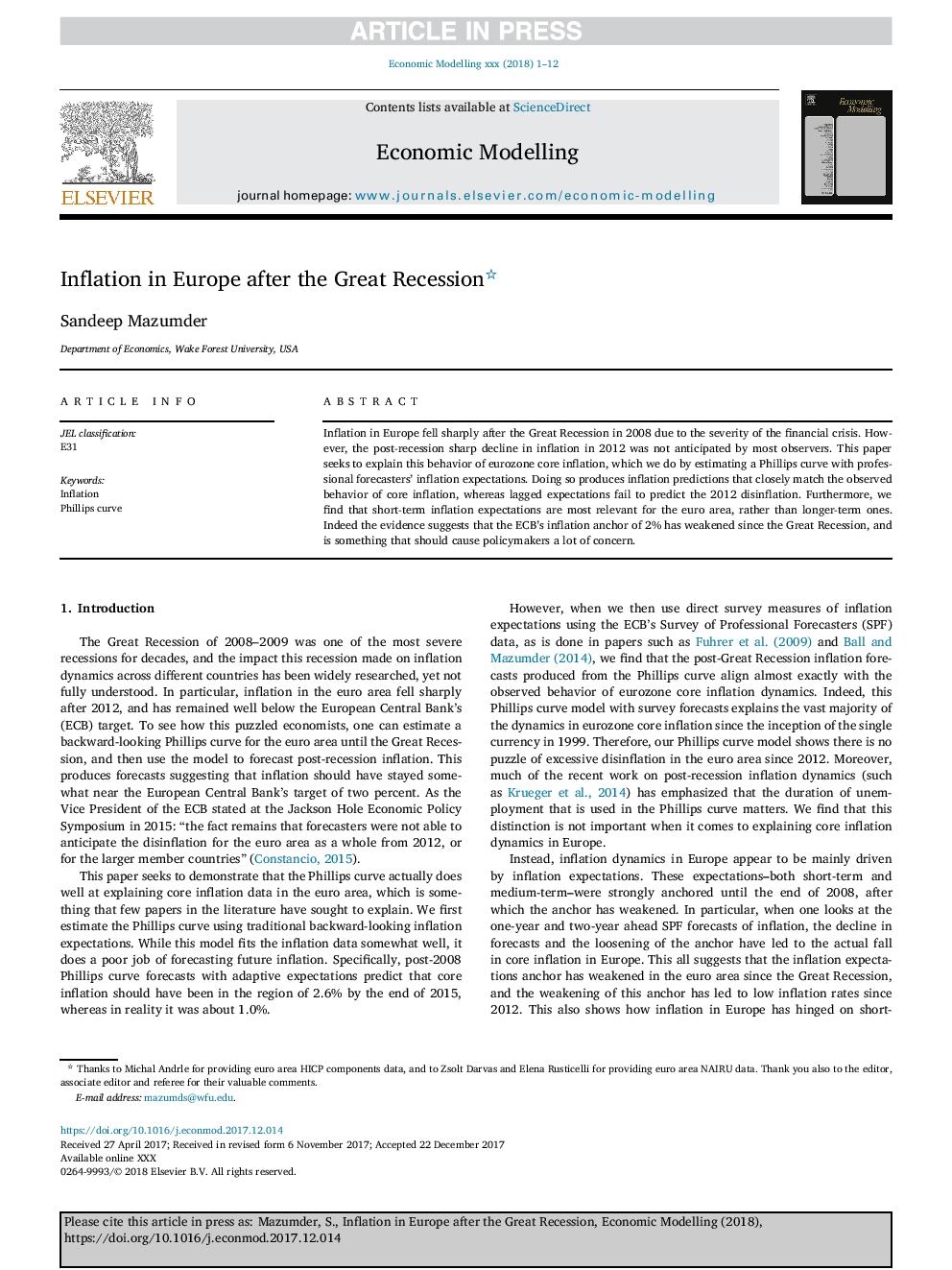| Article ID | Journal | Published Year | Pages | File Type |
|---|---|---|---|---|
| 7347211 | Economic Modelling | 2018 | 12 Pages |
Abstract
Inflation in Europe fell sharply after the Great Recession in 2008 due to the severity of the financial crisis. However, the post-recession sharp decline in inflation in 2012 was not anticipated by most observers. This paper seeks to explain this behavior of eurozone core inflation, which we do by estimating a Phillips curve with professional forecasters' inflation expectations. Doing so produces inflation predictions that closely match the observed behavior of core inflation, whereas lagged expectations fail to predict the 2012 disinflation. Furthermore, we find that short-term inflation expectations are most relevant for the euro area, rather than longer-term ones. Indeed the evidence suggests that the ECB's inflation anchor of 2% has weakened since the Great Recession, and is something that should cause policymakers a lot of concern.
Keywords
Related Topics
Social Sciences and Humanities
Economics, Econometrics and Finance
Economics and Econometrics
Authors
Sandeep Mazumder,
